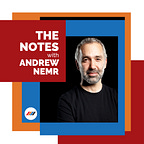I was working as the Executive and Artistic Director of the Vancouver Tap Dance Society, when this conversation happened. A local dancer came to me after a rehearsal and we got to talking about the deeper things of tap dance – history, creative pursuits, and the like. Somewhere in the conversation the dancer said, “Isn’t the whole point to be able to do whatever you want?!”
This note is going to be hard. Not only because the concept of freedom is highly ambiguous, but more so because it has been a lightning rod in the recent past. The United States of America was founded in part on the idea of freedom. Human rights are fought for upon a foundation of freedom. Exploration of the world, ideas, and creative pursuits are all undergirded by the idea of freedom. Even the idea of God is contested through the lens of freedom – “If God is so great, why can’t he do whatever he wants?”
The idea of freedom is everywhere, yet we all hold varying definitions of it. Envision for a moment gathering a group of people together for an open conversation about freedom. Think about the kind of interactions that may ensue. I have come to expect drama, if nothing else. Who gets to decide what freedom is? Who gets to decide who is free to do what? What freedoms do you hold tightly? So many questions, with equally as many perspectives and answers, if not more.
It is largely accepted that freedom as a concept is a good thing, and worth working towards. But the underlying definitions that are currently held and fought for live on a dramatically large spectrum. That said, I suspect that anything I share here will hit a nerve for some. I will tread carefully, but with no guarantees.
In General
Freedom in its most general sense may be expressed in saying something like, “I have the ability to do what I want, when, how, and with whom I want.” Implicit in this is the lack of external restraints or control – by someone else or circumstances. Freedom may be the idea of not being told what to do, the desire to be able to choose for oneself.
However, one of the realities of life as we mentioned just briefly in the last episode about Creativity, is that human beings are limited creatures. If we were only allowed to use our own strength and will, very little of what we see around us could have come to life. We collaborate, having others work as extensions of our individual strength and will. This makes it seem that we can do much more than is actually possible on our own. That makes our exploration of freedom something that will unveil our limitations and how we navigate relationships.
Natural Limitations
Limitations are ways in which we are restricted in making a choice. Limitations may be external, or self-imposed. They may be in surrender to a higher authority, or because we ourselves understand one thing to be better than another. If we begin our journey exploring freedom from the position that everything is possible, we may quickly find that we can’t do all we want, all the time.
There are plenty of obvious material or physical limitations that we encounter as humans – physical makeup like height, weight, strength, endurance, and access to material resources, for example. We can add limits set by geography and access to travel and relational resources as some of the less obvious limitations we may bump up against. Our circumstances with regards to the material or physical world affects our experience of freedom.
In an earlier note I discussed two wars. The first being one every individual has with reality (or God), and the next being the war individuals have with themselves. These wars can stem from encountering a reality that limits us, or a recognition of our own limited nature. The idea that, “I can’t do what I want because the world may not work that way,” or, “I can’t do what I want because I don’t seem to have it in me.” Both lead to a more general revelation of, “I simply can’t do what I want.” Here we find that freedom lives in profound relationship to desire.
There are also limitations in the area of relationships. The bond between family members – a parent and child, grandparents and grandchildren, and between siblings – for example, can create significant impact in our ability to feel free to make choices. Both external and self-imposed limitations can be experienced in these relationships. External limitations may come from a parent or older sibling through a dynamic of authority – “I’m your parent and what I say goes.” Self-imposed limitations come from the nature of love in these relationships. In the best of cases, we may self-limit so that we can make a choice that is good for the other person (a parent or sibling for example) whether or not we benefit in any way from it. The latter case may be true for friendships as well.
On the other side of that coin such relationships may be encouraging and supportive of our choices. Here they serve to expand our sense of ability and freedom. Either way, we find freedom a malleable concept in the context of relationship.
A way of thinking of Freedom
One way to make the idea of freedom something more specific, is to specify the purpose of the freedoms we seek. There are two kinds of freedoms to address here: Freedom from something, and freedom toward something. Consider the following examples:
Freedom from feeling like I need to drink
Freedom from being bullied
Freedom from a constant flow negative thoughts
Or
Freedom to dream
Freedom to speak honestly
Freedom to be generous
Thinking about freedom in this way is not new. Clearer thinking in what we are actually wanting can arise from such specificity. How much self-limiting must occur to be free from particular addictions, for example? How many external limitations must in place for someone to be free from bullies? How much effort must be enacted in order to overcome negative thoughts, and the obstacles we may experience in the pursuit of dreaming, speaking honestly, or being generous? Here we find that freedom requires effort, take intentional choices, and is tied to individual perspective and vision.
The Risk of Freedom
These questions of “freedom from” and “freedom to” are implicit in the idea of freedom, and undergird the risk we experience as we move toward experiencing more freedom for ourselves and others. Simply put, an environment that allows for freedom of choice, allows for the freedom to do evil. Without articulation of how we think of good and evil – even agreements around such things – we run the risk of devolving as a society. Of course, freedom of choice also allows for the freedom to do good. But the same articulation is required.
Often punitive consequences have been used as an easy way to attempt to limit freedom. However, actual freedom comes with the idea of taking on the consequences of whatever choices we make. Taking into consideration the individual and the social context of freedom, relationally, freedom seems to mean being unrestricted in doing what we want for ourselves and even others in creating the kind of life we want to have – in turn, without restricting others (honoring their freedom) while in our own pursuits.
It seems like what we are really talking about is responsibility and morality. Two things that often are taken for granted when we talk about freedom. Responsibility as the ability we have to make choices and endure the consequences. Morality as making those choices within a framework of good and evil. Responsibility goes to our part in the practicing of freedoms. Morality goes to the personal and relational agreements and expressions of freedoms. While we may have the freedom to do all things, we come to agreements that certain things are generally good and certain things are generally bad. We then take on the responsibility of working within those agreements. These moral judgements and complimentary responsibilities ultimately point to the kind of life we want as individuals and communities. The fight for freedom is often a pursuit of being able to have that kind of life.
Approaching Freedom
Freedom is not separate from morality, nor is it the kind of idea that is somehow a virtue in and of itself. Freedom without order is chaos. Order without agreement is dictatorial. Freedom speaks to honoring the will of every individual while also honoring the relational context we are in. In the proposition of life that Jesus Christ presents there are three ideas that are worth exploring here.
All things are permissible, but not everything is good. Working from a position of want focuses our efforts on gaining the thing we don’t yet have. In the context of freedom, if we desire a particular freedom, but can’t have it yet, we may begin to organize our lives strictly for the achieving of that particular freedom. The challenge here is that whatever that particular freedom is, may not be worthy of such focus and effort. What if we changed our focus from what I can’t do, to what is good, or edifying? And that, not just for ourselves, but others as well? We must first sit in the idea that anything is permissible – we can do whatever we want. Then we can be free to choose to act in ways that are good and edifying.
Where the Spirit of the Lord is, there is freedom. This statement basically says that where we find the energizing power that is of God, naturally directed toward the things of God, we will also find freedom. There is no doubt, no second guessing, no evil in this place. With such a spirit we are free from evil and free to do good – and not be confused as to one or the other. Imagine trusting that the choices that you are making are the good and right ones for any given moment. Anxiety can’t exist there. Rather, confidence is there, and freedom comes as the Spirit that is in you is brought to life.
Love fulfills the law. The word love requires its own exploration of definition – which will happen – but for now, the idea that willing the good of the other will have to suffice. Laws in turn are the mechanisms human communities have used to articulate moral agreements and govern action for millennia. Laws are mostly restrictive and therefore by their very nature hinder the ideal of freedom. Love, however, is active, inherently moral by our working definition, and relational. From an individual standpoint, my act of love may be a self-limiting action, but it is couched in the freedom I have to choose to love. Could growing in our knowledge and ability to love well, be the thing that fulfills our desire for freedom?
I will leave you with that.











